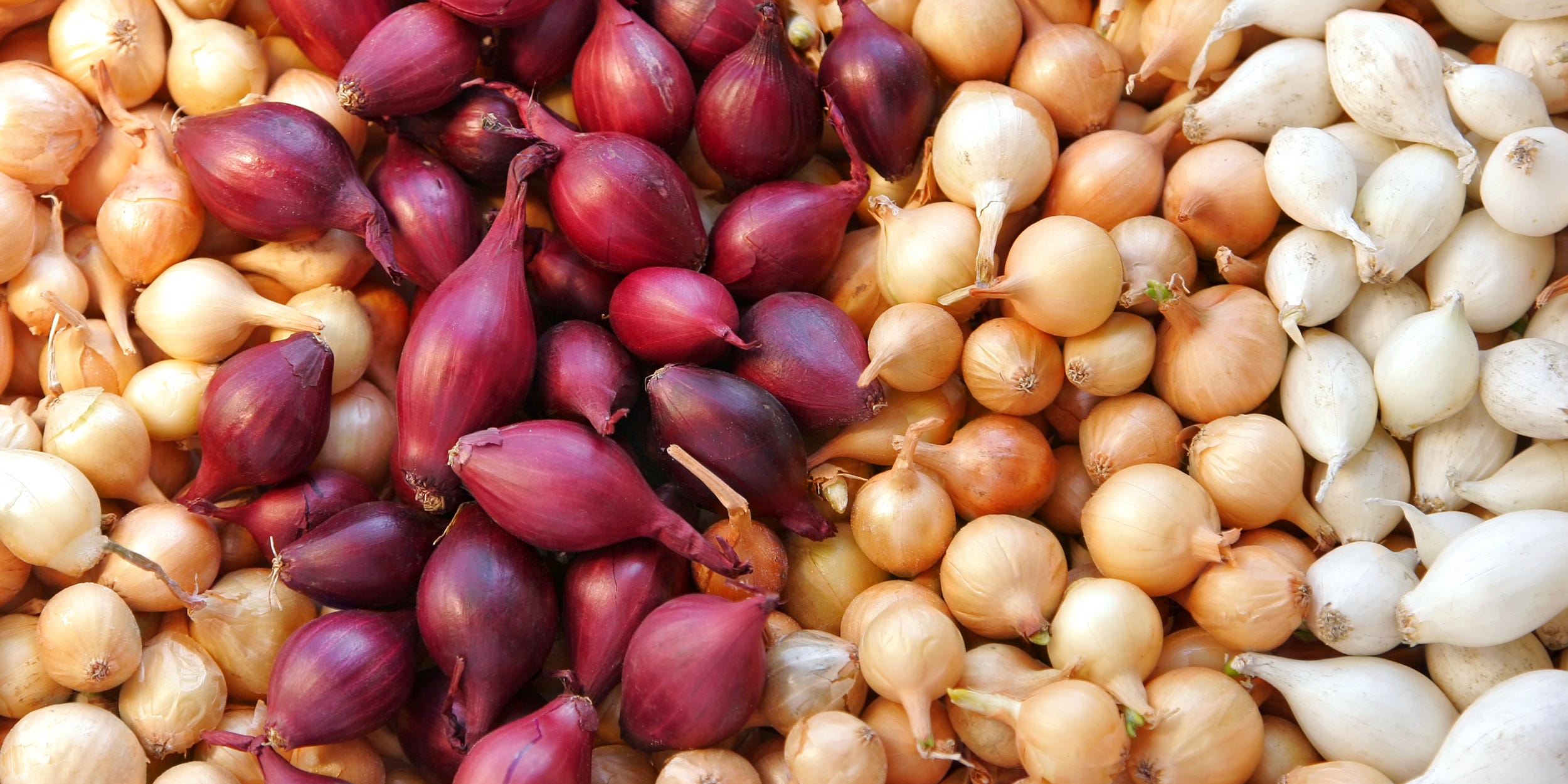
Veta/Getty Images
- The best way to store whole onions is in a cool, dark, dry place, where they can last up to two months.
- Peeled, chopped, and cooked onions can last up to a week when stored in the fridge.
- Never store onions near potatoes or you'll risk speeding up the aging process of both vegetables.
- Visit Insider's Home & Kitchen Reference library for more stories.
Onions are a culinary staple, incorporated into a wide variety of savory recipes as a subtle background note, a punchy topping, or as the star of the dish. The vegetable also keeps well, especially when left whole.
For advice on the best way to store onions, we spoke to Linh Nguyen, owner of LA's plant-based restaurant Au Lac. The kitchen goes through pound after pound of onions, using them both cooked and raw in a variety of dishes, including their signature pho. Her first tip for successful storage? Buy quality onions in the first place.
When shopping for onions, look for smooth, firm veggies and "avoid bruised or soft onions and any signs of moisture" like dents, moldy spots, or soft spots, says Nguyen. Avoid sprouting onions or ones that have a strong odor.
Starting with high-quality onions will ensure that they will last, especially if you follow some basic guidelines for storage.
How to store onions
How long your onions last will depend on how you store them. Whether you're setting aside whole, cut, or cooked onions, follow these guidelines for the longest shelf life possible.
Whole onions
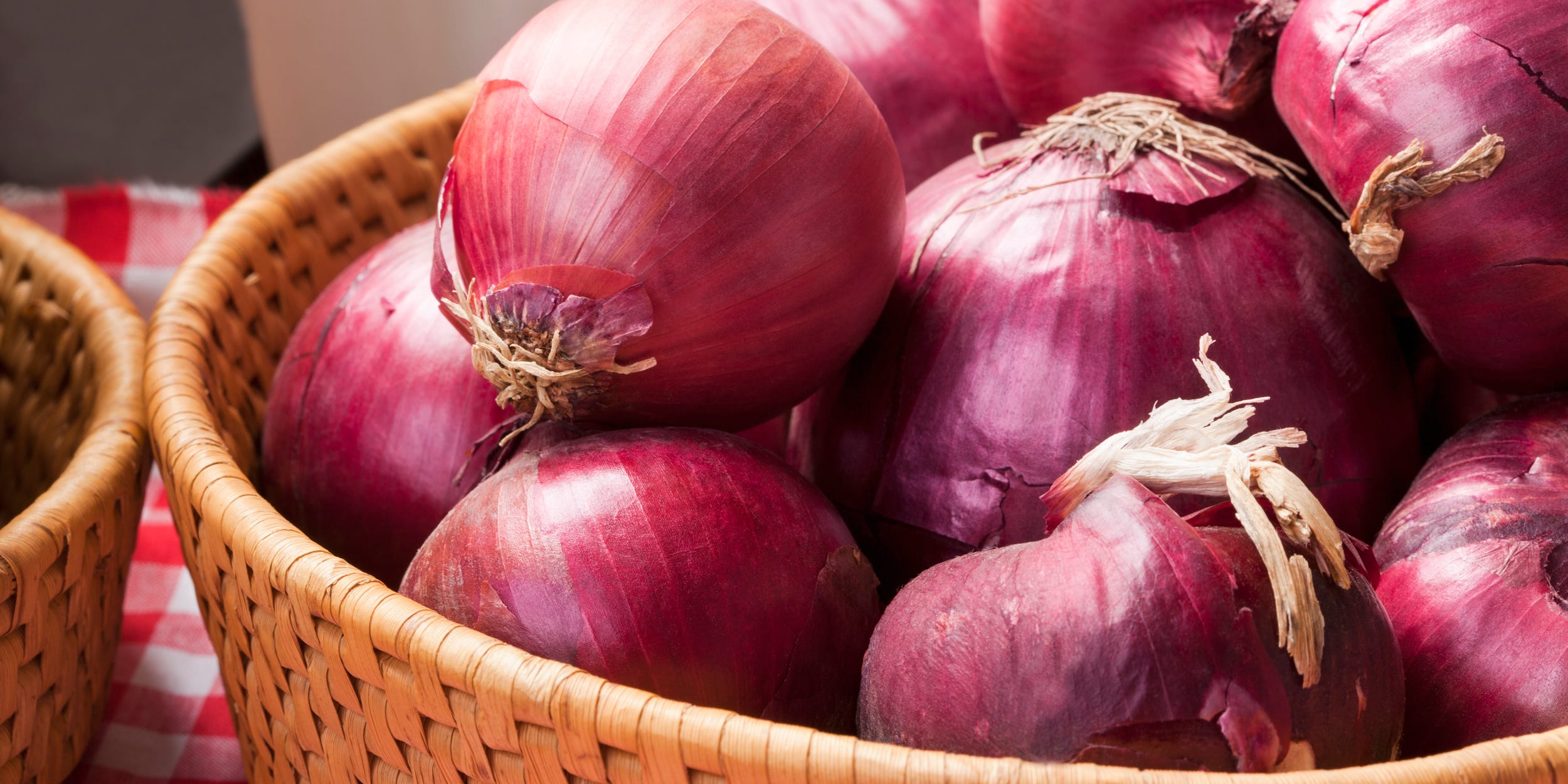
Drbouz/Getty Images
The ideal conditions for whole onions (whether they are yellow, white, or red) is a dark, dry place with good ventilation and a temperature between 45-55°F. This includes areas like a pantry, basement, or garage
"Onions need to breathe and should not be stored in a plastic bag, which is often how you carry them out of the store. After shopping, remove and reuse your plastic bag," says Nguyen. A basket or netted bag works well for storage.
The key to longevity is to keep them away from moisture. Avoid the fridge, since onions may actually spoil faster in the damp environment.
Keep onions away from heat sources like the stove and sunny areas like windows. Depending on how fresh onions are when you purchase them, whole onions can last for a month or more.
Peeled onions
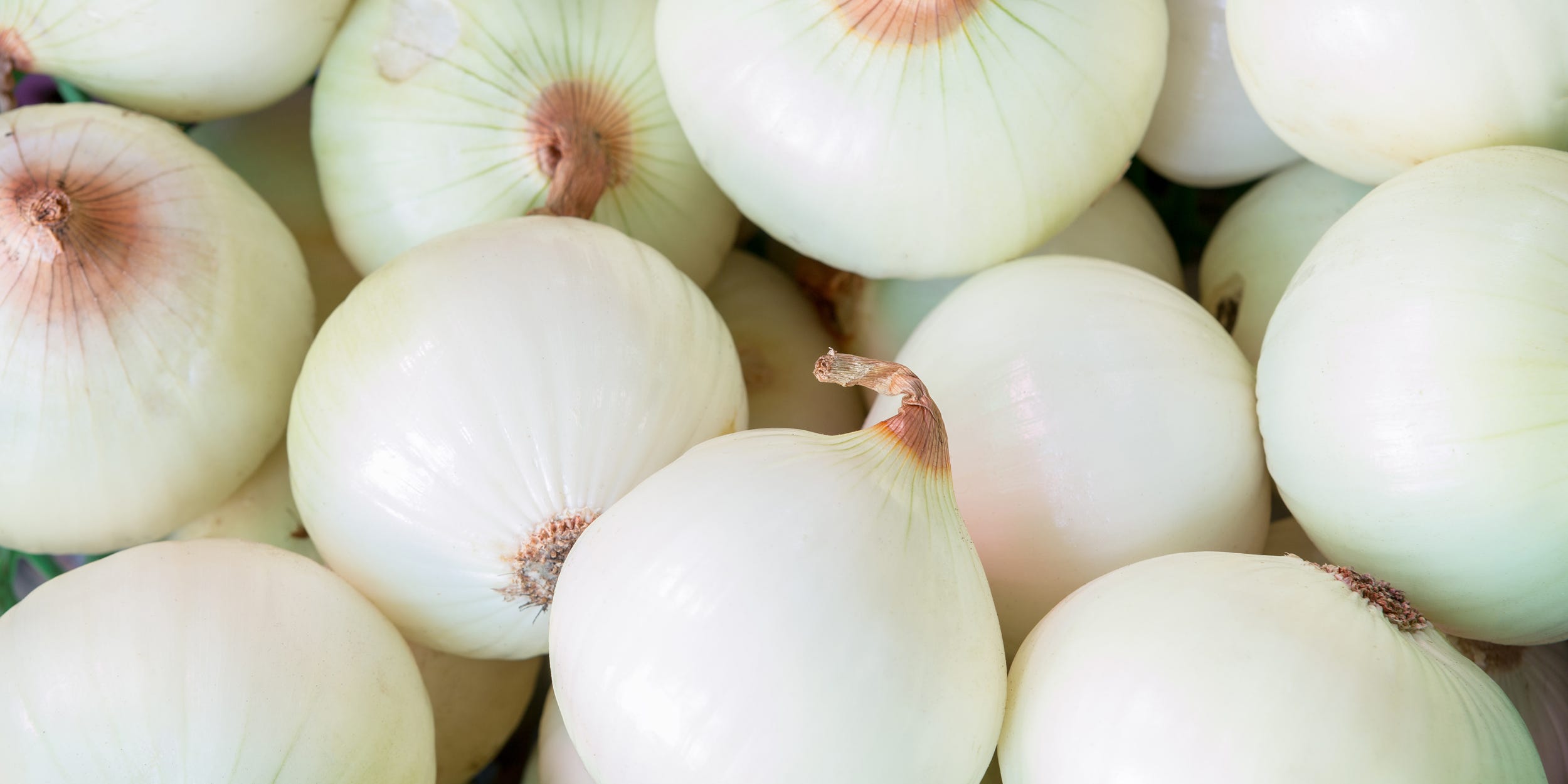
WichitS/Getty Images
Peeled onions are convenient but they won't last as long as whole, unpeeled onions.
"Store in an airtight container and refrigerate, since peeling the skin can introduce bacteria and spoilage," says Nguyen. Store them in the crisper of the refrigerator in a thick, zip-top bag with the air squeezed out.
Avoid storing peeled onions next to fruit or other items that don't pair well with onions, since other produce in the crisper drawer can take on the oniony scent. Fresh peeled onions can last for a week or two stored this way.
Cut onions
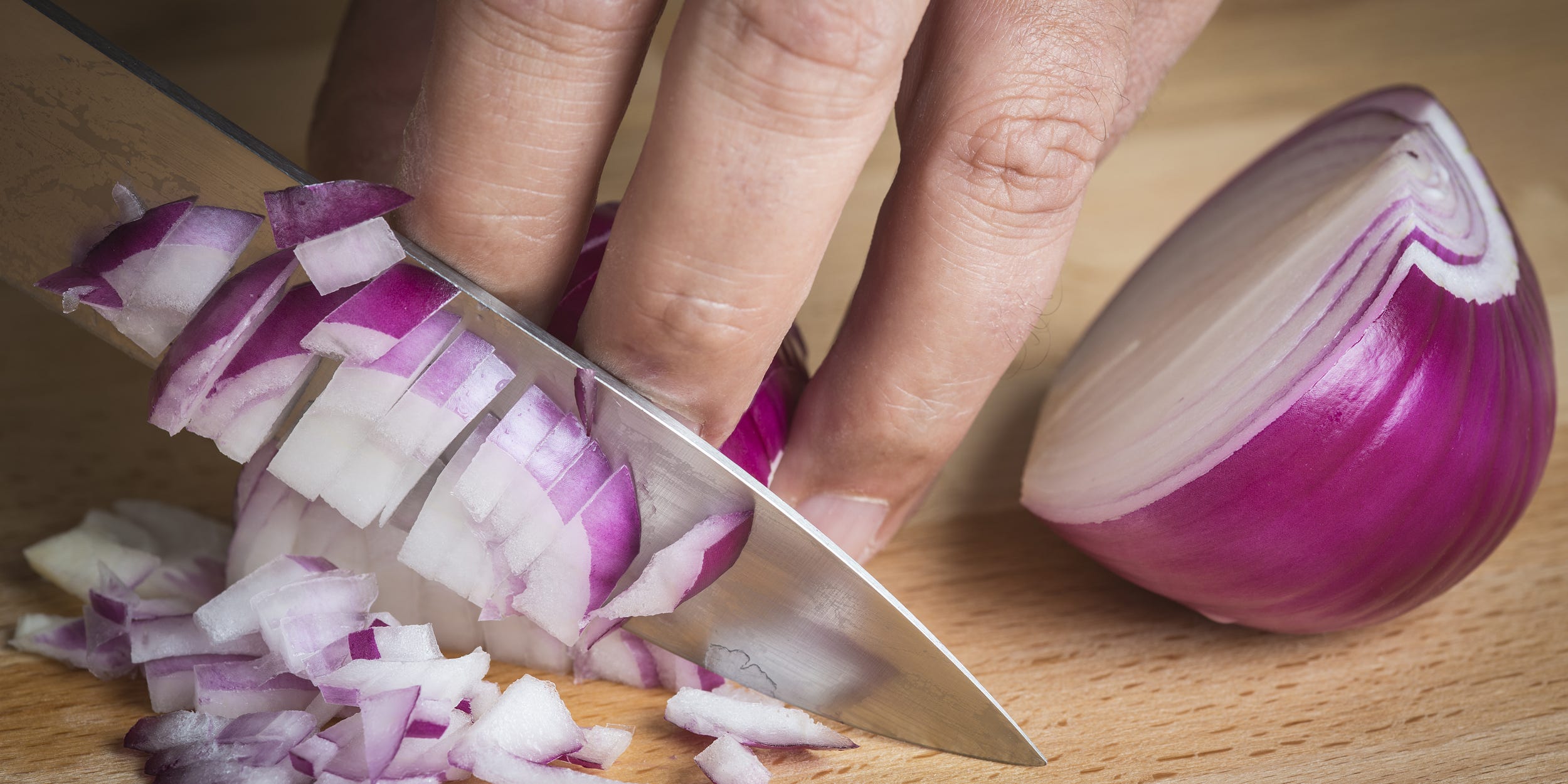
Angel Simon/Shutterstock
Chopped, sliced, or diced onions should be stored in an airtight container in the fridge.
Chopping onions introduces more moisture which can encourage bacteria, so Nguyen recommends using a storage container with a shelf with drain holes, which can help reduce the extra moisture.
Leftover halves or quarters of onions should be tightly wrapped with plastic wrap or food wrap. Cut onions will keep for about a week this way, making meal prep a cinch.
Cooked onions
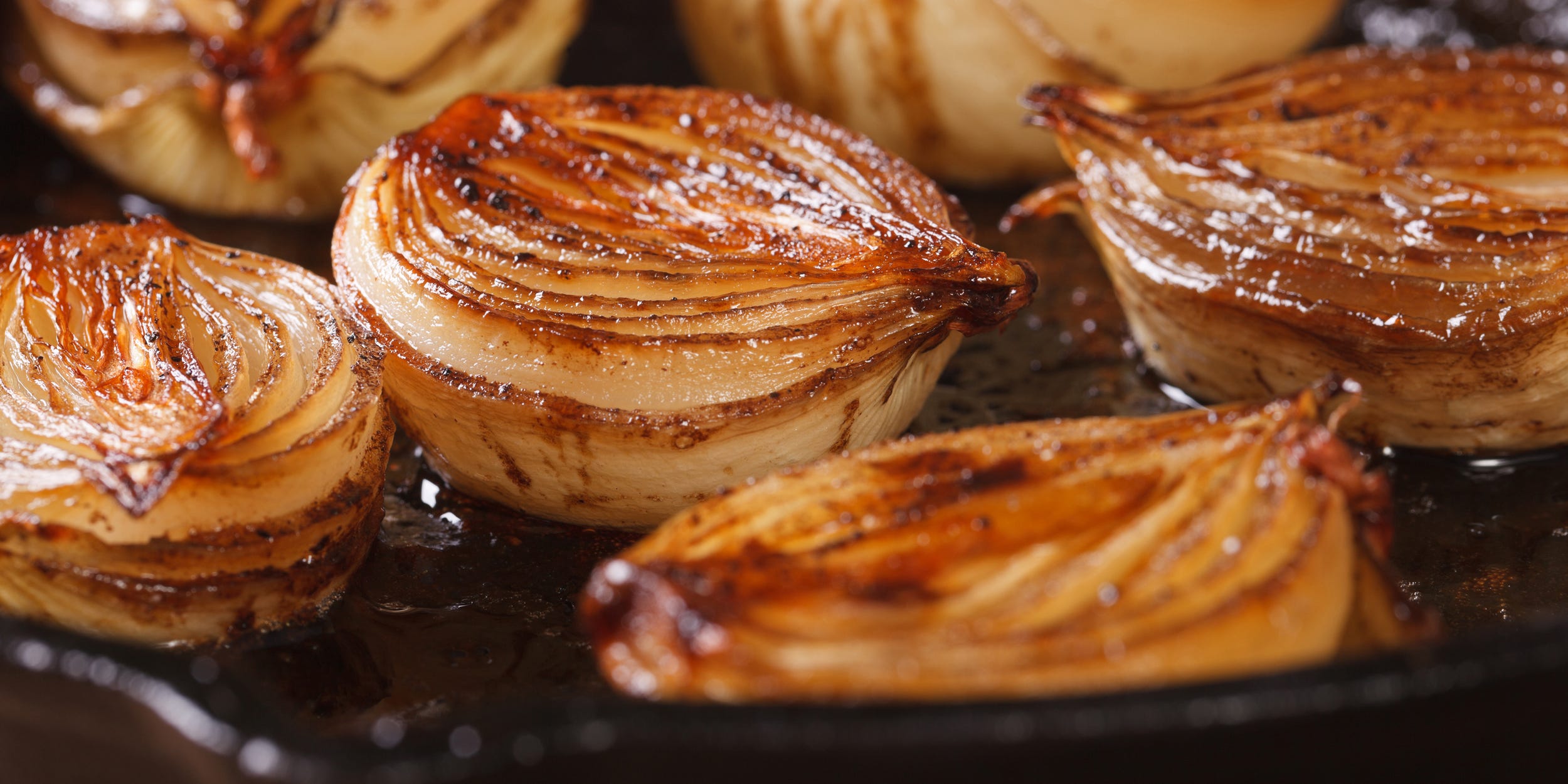
ALLEKO/Getty Images
To store cooked onions, transfer to them an airtight container within two hours of cooking and keep them in the fridge.
While it's perfectly fine to store cooked onions, note that this will have some effect on their flavor. Nguyen does not prep cooked onions too far ahead of time because she wants the "sharpness and pungency of a fresh onion," opting to cook them as fresh as possible.
Fried onions don't keep as well since they'll lose their crispness and any breading will often fall off.
Cooked onions, whether they're sauteed, roasted, or grilled, will keep in an airtight container in the fridge for three to five days.
How to store green onions, shallots, and chives
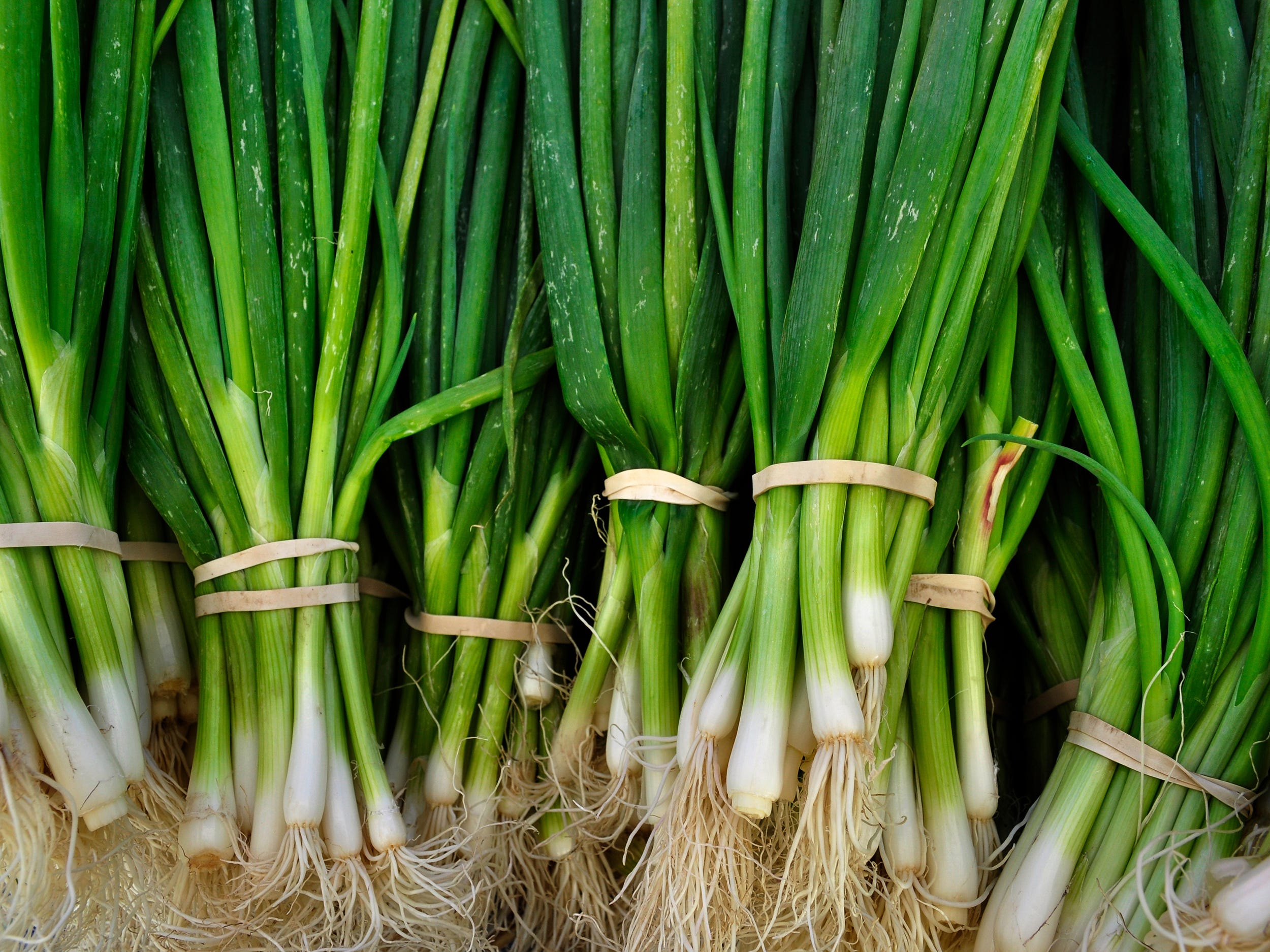
Vivian Lo/Getty Images
Shallots, green onions, and chives are also in the onion family. Some of the same rules apply for storing these veggies, but there are some differences.
- Shallots: To store shallots, keep them in a dark, cool, dry, well-ventilated place for up to a month. They can be stored along with other whole onions. Cut shallots will last up to five days in the fridge and cooked shallots will last for a few days.
- Chives: Chives are more delicate than onions and should be used as soon as possible. To store chives, place them in a zip-top bag with some air sealed inside and store in the fridge for five to seven days. If your chives wilt, you can still cook with them as long as they are still green.
- Green onions (scallions): "Unlike onions, green onions need to be refrigerated or they wilt," says Nguyen. To store green onions, remove the rubber band from the bunch and place the green onions root-side down in a jar or cup with an inch of water in the bottom. Cover the green tops with a zip-top or plastic bag and stick it in the fridge. They should stay perky for at least a week. Sliced or cooked scallions will keep for a few days in a container in the fridge.
Other tips for storing onions
Do not use the fridge to store whole onions. Unless you're storing green onions or chives, don't use the fridge for storing whole onions. The moist environment will actually make the onions age faster, leading to mushy vegetables. Cut and cooked onions, however, should be kept in the fridge to discourage bacteria.
Don't store onions with potatoes. Not only is storing onions with potatoes bad for the shelf life of the onions, it's bad for the potatoes. The two vegetables may taste great together in a dish, but they speed up each other's aging process. Potatoes sprout faster when stored near onions (which produce ethylene gas) and onions won't last as long, either.
Freeze them for longer storage. While onions will last for a month or longer when properly stored, you can buy more time by freezing them.
To freeze onions, peel and chop the onions and add to a zip-top freezer bag, squeezing out the air. Frozen onions will keep for a few months.
When ready to use, defrost in the fridge overnight or drop the clump of frozen onions directly into the pot or pan, cooking through completely. Frozen onions will keep for a few months. Note that frozen onions are not good for recipes that call for raw onions, since the vegetable will lose its crispness in the freezer. Use them in your favorite hot recipes.
Throw out bad onions immediately. Onions become mushy and slimy and take on a strong oniony odor when they go bad, sometimes growing mold. Give your onion a sniff and squeeze before using-fresh onions will be firm and have a fresh, light scent. Discard any bad onions immediately since they will speed up the aging process of the onions around them.
Insider's takeaway
Onions are a versatile ingredient you always want to have around-luckily, they last for a month or more when stored properly. Keep a few onions in a dark, cool place and stash any peeled, cut, or cooked onions in the fridge so you always have the vegetable handy.